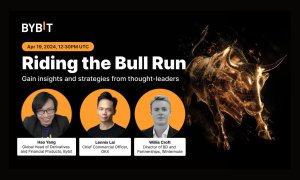Live from iFX EXPO in Hong Kong: Why aren’t we emulating Alibaba or WeChat? Industry giants debate keeping up with the times
“In terms of what the client demands are, it is worth thinking that many clients of retail brokerages today use NetFlix where they pull up a movie when they are commuting on the MTR in Hong Kong, then get home and then get picked up on their TV where they left off. From an engagement persepctive we need to think on those lines.” – Kurt vom Scheidt, Global Head of Foreign Exchange & Co-Head of Trading, Product and Execution Services at Saxo Bank

The MetaTrader 4 platform’s continuing evergreen status has many facets, however one of the major reasons for its absolute ubiquity is its wide reaching compatibility with the plethora of automated trading robots – known as Expert Advisers or EAs.
The absolute dominance of automatically traded retail FX in mainland China continues unabated, and actually has gained massive ground during recent years with the establishment and rise to prominence of massive introducing brokerages which are in reality portfolio managers with assets under management standing at hundreds of millions of dollars across the entirety of the mainland of the People’s Republic.
The vast majority of the customers of China’s retail FX brokerages and introducing brokers view themselves as investors rather than traders, meaning that they simply put up the capital, often generated by monthly income from vast illiquid investments ranging from commercial property to agricultural technology so that it can be traded automatically on the MetaTrader 4 platform connected to one of China’s numerous and well trusted EAs.
This year, some six years after its initial launch, the MetaTrader 5 platform has been awoken from its slumber and is now gaining ground internationally among brokerages, technology providers and liquidity integration solutions providers, as well as executing venues at which listed derivatives are traded by retail customers.
The question is, is this the best that can be achieved, or are the highly advanced commercial entities in China that span across all sectors of the electronic trading business ready to move the standard on.
The 10th iFX EXPO industry conference, which has taken place during the course of this week in Hong Kong’s Exhibition and Convention Center in Wan Chai, and was produced by ConversionPros and industry news and research group Finance Magnates is now drawing to a close, and one of the most poignant discussions among the many which were raised by senior institutional and retail electronic trading industry figures from across the world has been the future of the technological basis upon which our industry operates.
Yesterday morning, seven senior international FX industry executives convened to discuss how the development and progress of trading platforms and the infrastructure that drives this business forward should be developed, touching on important points.
Hosted and moderated by Itai Damti, CEO for the Asia Pacific region at Leverate, the opening gambit was “Technology doesn’t live in a vacuum. I would like to therefore ask what major trends you see in your businesses and how these trends drive technology booms across the entirety of this industry.”
Answering Mr. Damti’s initial probe into the technological future of electronic trading was Stanlsiav Efremov, COO at ICM Capital. “We can see big moves, even after the Swiss National Bank’s decision to remove the 1.20 peg on the EURCHF pair and the flash crash, both of which called into question risk management techniques and created dramatic volatility, even though they were key events.”
“It has become more and more important to control risks on a real time basis, and brokers now need to have systems and workflows to help operate in such environments when sudden sudden moves occur, and to have the ability to control all of these aspects from both the broker side and the client side” said Mr Efremov.
Paul G Smith, CEO at Mobile Trading Partners then added “We have seen moves from within two aspects. In certain parts of Asia we have seen situations in which the mobile broker is yet to arrive, but there are now markets in the same continent in which no desktop is used at all, and the entire business is conducted via mobile. I have seen so much activity in which automation is important around mobile, including the development of push notifications, and systems which are designed around activating the client, mainly because if these systems exist, less staff are required and technology can replace them.”

Nir Yaffe, VP Products at SpotOption considers regulatory stipulations to be a vital consideration when looking at technological evolution. “We recently fulfilled a new regulatory requirement with CySec and the FCA, and also have begun to operate in the CFD and FX industry by taking our solution to the MetaTrader platform and can now offer a hybrid solution” at which point Mr Damti asked “How does regulation affect specific products, whether binary or FX?”
Mr. Yaffe said “After majoring on having to overcome regulatory changes in various regions, technology providers need to study the regulatory proposals going forward and develop adaptable systems that will be able to evolve along with the increasingly fast moving regulatory structure.”
Maor Lahav, COO at Panda TS was next up. He said “We are now experiencing a large number of marketing agencies and affiliates starting to push toward the FX sector on the retail side, and I feel like we are going back in time to 5 years ago. If brokers started to struggle with buying media or working with IBs, we will see a new flood of new traffic consisting of new traders that will likely come from binary to FX, and this will force technology changes.”
Kurt vom Scheidt, Global Head of Foreign Exchange & Co-Head of Trading, Product and Execution Services at Saxo Bank said “We have to recognize changes, and cannot ignore what we have seen recently. As of yesterday, what I am referring to has been symolized as GLBR (the new name for FXCM – Ed.), and a lot of us are sitting here wondering how we can best take advantage of this situation.”
Mr. Damti then stepped in, asking “What are the steps that Saxo Bank has taken to make the environment more transparent?” to which Mr vom Scheidt replied “There are a number. We have from an execution perspective, always ensured that we are more symmetrical in terms of fills of orders, as we realize retail clients do not like to get stopped out and we aren’t making money if they get stooped out, so we work to ensure the business model is sustainable via the comprehensiveness of our platform” he said.
Global FinTech leader and industry reference poing Andrew Ralich, CEO of oneZero Financial Systems concurred with the viewpoints expressed thus far, saying “Everyone else has hit the nail on the head already with regard to regulation, that being what our clients are looking for at oneZero. In Asia, from a technology perspecive, I would encourage brokers here to ensure care in which technology providers they choose. From a regulatory perspective it has become more expensive to run a brokerage, and many now need to change their margins and profitability to ensure they are in keeping with regulation, therefore those who don’t wont find that it ends well.”
Mr. Damti then moved on to a topic that dominates in China. “Let’s talk about mobile” he said. “With regard to numbers, some brokers such as Plus500 have got 40% of all activity coming from mobile and 70% of all signups coming from monbile whcih is staggering. Paul, what makes us lag behind Facebook, Alibaba and Amazon in terms of that type of engagement model?”
Mr. Smith answered “A broker can get up and running quickly with a pre-packaged platfrom but the world is more complex than just trading. Brokers cannot ask people to send in compliance documents by post.”
“It is now quite reasonable to send in selfies and pics of ID documentation, as there is a lot that can be done with KYC and AML” – Paul G Smith, CEO, Mobile Trading Partners.
“It may be that certain brokers that think mobile is only the way to do the trading, and that is not to consider the entire solution. It is missing a trick to think of it as just a trading tool, as it is all about acquisition and engagement, not just trading. Resolute (Startup British deliverable FX firm – Ed.) is a huge firm. I use them to buy currency when I travel via my smartphone. I was in a shop yesterday, here in Hong Kong, and I got a message saying that I needed to top up, so I topped up and it went through immediately. In Asia many people use only mobile as their connection to the internet so services such as this are vital.”
Paul has got it on absolutely on the head. Saxo Bank’s acquisition via mobile is not quite 70%, but around 35% revenue comes from users on mobile phones yet 90% use mobile devices for trading. Brokers have to not just think about mobile for execution or onboarding but also about status of account and acquisition, retention, charting and engagement. In terms of what the client demands are, it is worth thinking that many clients of retail brokerages today use NetFlix where they pull up a movie when they are commuting on the MTR in Hong Kong, then get home and then get picked up on their TV where they left off. From an engagement persepctive we need to think on those lines.” – Kurt vom Scheidt, Global Head of Foreign Exchange & Co-Head of Trading, Product and Execution Services at Saxo Bank
Mr. Yaffe then made the inevitable allusion toward WeChat, the most essential communication channel in China. “WeChat is the absolutely correct way to go. This offers immediate trading, directed via WeChat wallet. When brokers embrace that and move to WeChat, it will be a gamechanger.”
Mr. Smith then said “That’s a case in point, WeChat shows how mobile-focused this region is. In other parts of the world, there is apathy because of the lack of full functionality on mobile devices. For example, the reason that people top up through other methods is because payment has been so hard via mobile and channels need to be improved.”
Mr. Damti then brought the industry standard into the equasion. “Let’s look at MetaTrader and its role in stifling innovation. I think it has prevented progress despite its status as the gold standard of off the shelf platforms. How can a broker excel at putting everything onto mobile, when they are stuck with MetaTrader?” he asked.
Mr Efremov answered “Most companies will have to develop own multi-faceted platform, and think about integration right from the beginning, which will bring more instruments to trade and more flexibility when it comes to the devices that it is available on.”
Mr. Ralich said:
“Currently there are two conflicting trends, and opportunities for brokers that I don’t think will ever make the MetaTrader platform or mobile broker disappear, as they are mutually exclusive. MetaTrader has been able to develop systems through MetaQuotes’ language and the ubiquitiy of the platform, whereas Plus500 has proved that mobile is advantageous. It does not matter who develops it, nobody is going to provide a Quant system on a mobile. The competition is huge. Investing in mobile systems or any new technology means that if a firm goes toward developing an automated system, and then the client doesnt like that broker, he can take it somewhere else, and that won’t translate to mobile” – Andrew Ralich, CEO, oneZero
Mr. Smith was quick to provide his response. “I disagree” he said. The combination of mobile and cloud is better than a desktop solution. It is better for a trader that wants to have EA running in the cloud.” Mr. Ralich responded “Yes, but the EA needs to be written and hosted somewhere” at which point Mr. Smith conceded “I agree that an EA wont work on a mobile device.”
Mr Lahav then brought Plus500’s mobile presence back into the discussion, saying “There is a reason why Plus500 has 70% usage on mobile. One of the challenges of MetaTrader 4 is that you can’t acquire a client via mobile. Instead you need to onboard clients via a brokerage website and then give them a mobile application at a later stage. We are developing an app which we give to the broker which will facilitate registration and the uploading of compliance documentation via mobile devices.”
“We must shift away from talking about client acquisition. We must focus on how to treat existing customers well. Nothing is cheaper than getting existing clients to spend more, and attracting new clients via word of mouth” Kurt vom Scheidt, Global Head of Foreign Exchange & Co-Head of Trading, Product and Execution Services at Saxo Bank
Mr Lahav then directed a response to this by stating “You must agree most of the brands don’t have the presence of Saxo Bank, therefore those need to get other value cannot do so in this manner.”
Mr vom Scheidt replied “Paul brought up Revolute, which is new. I can point to probably ten people in this room, that probably use Revolute which is new and is a mobile solution and a genuine FinTech product for retail users.”
Mr Damti then interjected by asking Mr vom Scheidt if platforms such as Fadcebook and Instagram, as a result of their flexibility as they own their own platform, could be a method the FX technology sector could adopt. “Give me an example of what we can expect with proprietary platforms that give new user experience” he said.
Mr vom Scheidt replied “Our platform is based via OpenAPI. Of course we want the majority of people to use the platform but we know that it does not suit everyone’s needs so we are using us as a facilitator. What clients can do to focus on their own niche and service their clients in their own way.”
Returning to the MetaTrader conundrum, Mr. Ralich said “It is not fair to say that MetaTrader stifles innovation, instead it is more appropriate to say that it makes it diffcult to innovate on front end eperience. It is easier being a FinTech startup that creates a new front end, but there is a lot of innovation going on in the back end and it doesnt have to be the latest mobile front end that will make the difference. It is taking the industry dominated by one front end, and doing things within that environment, and putting multi asset trading environments into MetaTrader. Many brokers cannot differentiate their front ends, and we are seeing more brokers being regulated like an exchange. There is a tremendous amount of innovation that exists and that is required in the back end of the trading environment, it is not just about having a cool GUI.”
Mr Lahav said “MetaTrader 4 is a good product. We have offered it for 10 years and our opinion is that if you have an impressive looking proprietary paltform it doesn’t affect revenues. Acquisition technology is where revenues are affected. MetaQuotes has ways which can upgrade the platform to make it unique, and these are good products to major on.”
Mr Yaffe moved the conversation away from the de facto trading platform, and onto a very interesting new trend that is being taken very seriously by allcomers from brokerages to news and analytics providers to vendors. “With regard to machine learning, we have a new system that predicts who will be a VIP trader, the system being based on AI prediction capability. Therefore I think prediction capabilities can be more centrally related to brokers activity in future.”
Mr. Damti then noticed that the last few comments had brought into the discussion a theme, that being automation. “Plus500, who never attend conferences, and was et up not long ago by idnustry outsiders that has a small number of staff and never contact customers, makes an absolute fortune.”
“Their digital targeting is excellent. I was once searching S&P trading online, and I got a targeted advertisement offering me their platform to trade the S&P” he said.
Mr Lahav then revealed “There is a story playtech Plus500. A due diligence team who were looking for the ‘secret sauce’ of their business model went door after door in the office, trying to find it. What they found that there was no real secret, just that in a simple way they did everything right. This included proper SEO along with a good marketing budget, and a very unique acquisition funnel which today a lot of companies are copying. There is no secret sauce, it came from the gaming industry where it is a well known practice where the onboarding of clients is automated. Many brokers still dont know how to do this.”
Mr vom Scheidt said “Yes, that can apply to a few other examples too. The second largest retail FX broker by volume has just 12 employees in Japan. The common currency between them is they are focused on what they do well and what their clients want and partnering with the right people to deliver to clients.”
Mr Damti then observed with regard to automation, what effect this may have on the commercial operations of an FX firm. “Saxo Bank is huge. How do you think the structure of brokers will be in 5 years rom now? Will there be an increase in marketing spend and a decrease in headcount?”
Mr vom Scheidt said
“It depends on the firm. We have no spot traders anymore, and we are entirely automated in terms of risk management, with some exceptions. The process is entirely automated but we don’t just check the opposite sides of orders. It is automated in terms of being makers and takers in markets. People around the age of 17 are the people who are at the point in their life at which they make decisions in setting the trends in how they will consume and it is quite frightening that these people know everything about mobile and virtually nothing about how things were traditionally delivered, so this is now in their hands” Kurt vom Scheidt, Global Head of Foreign Exchange & Co-Head of Trading, Product and Execution Services at Saxo Bank
There are in this case many different methods of looking at technological development. It is very clear that the fully comprehensive mobile system dominate in China and in other parts of Asia, however this poignant discussion brings forth the absolute dichotomy within the industry of those wanting to build on existing retail FX technology and adapt it, and those who want to completely revolutionize it.









